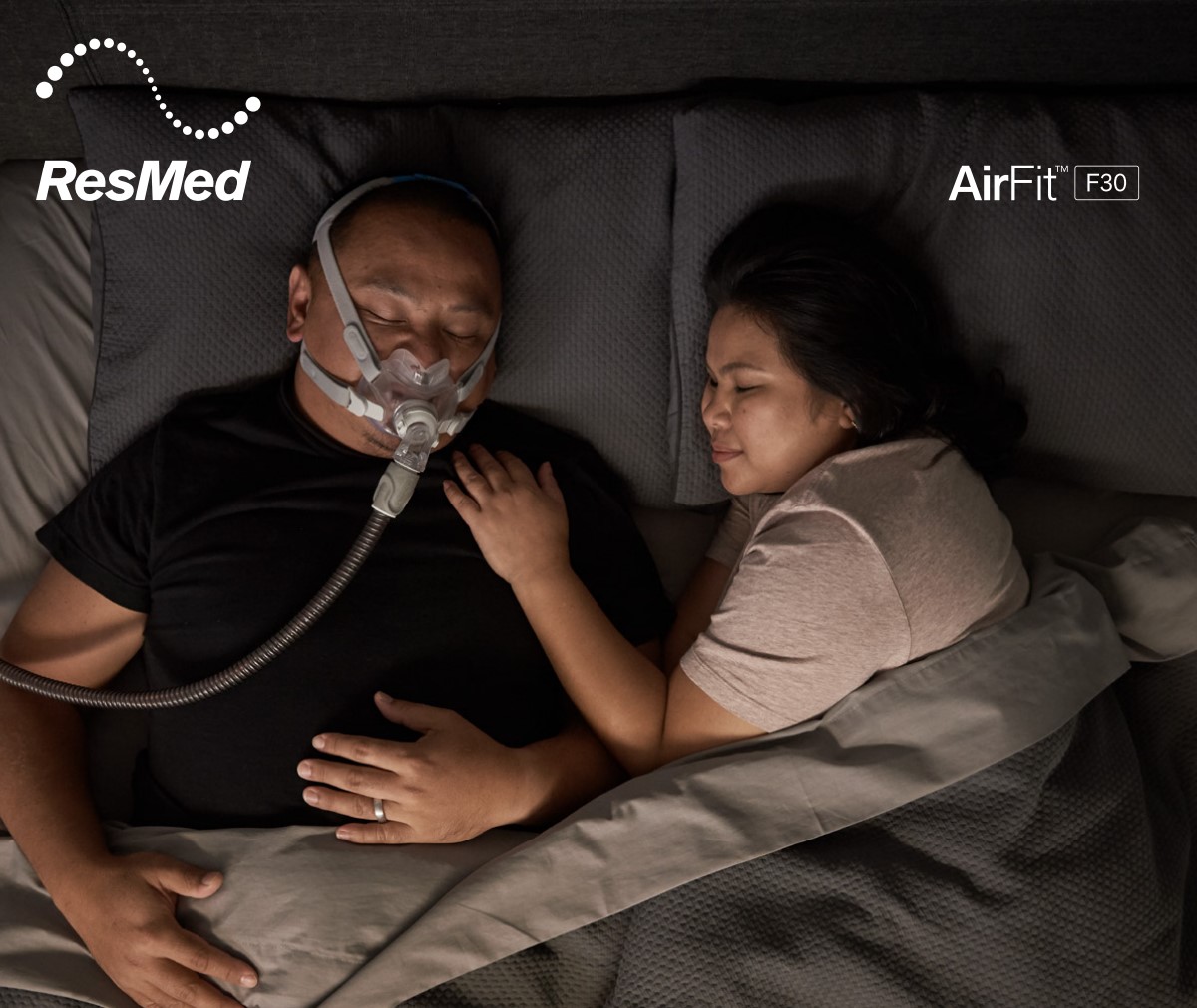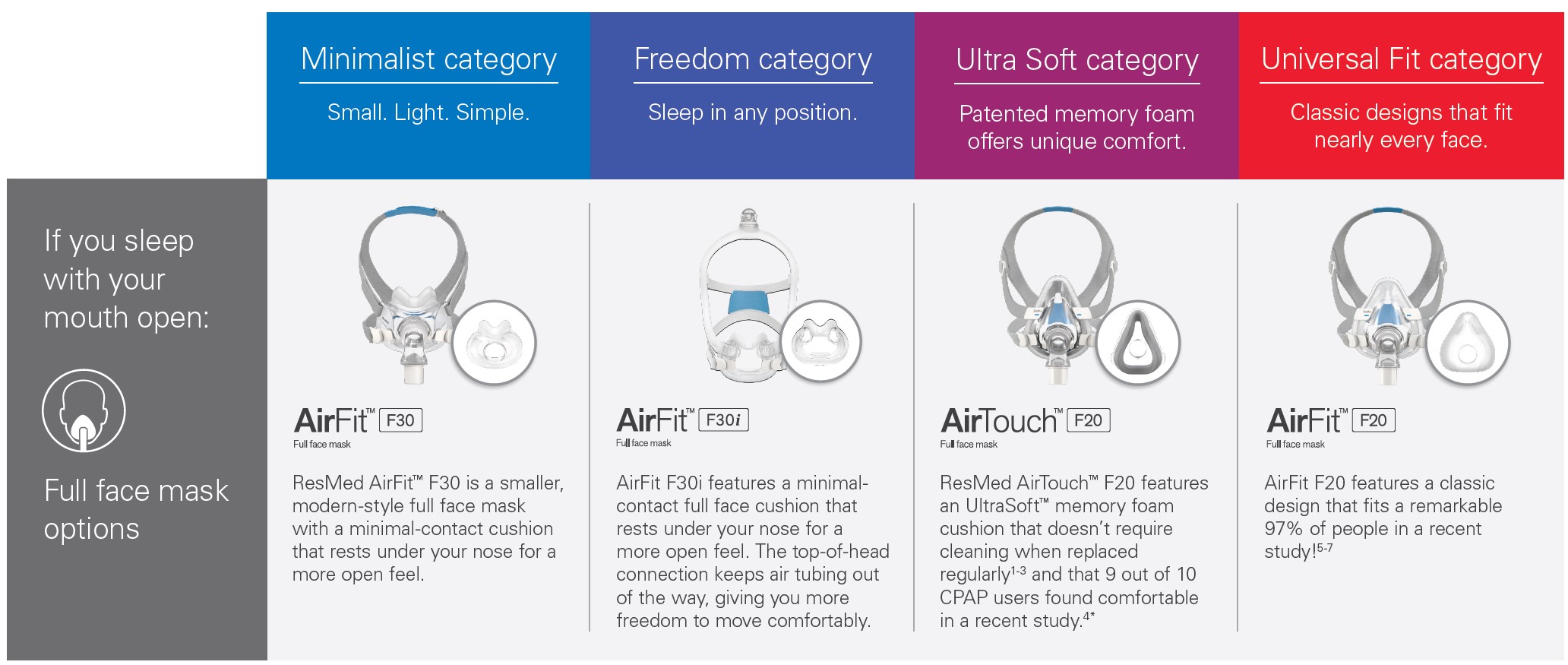Types of CPAP masks
Continuous Positive Airway Pressure (CPAP) masks treat sleep apnea and other respiratory disorders by delivering a constant flow of air pressure to keep the airway open during sleep. There are several different types of CPAP masks available on the market, including:
Full-face mask: This type covers the nose and mouth, making it the best option for those who breathe through their mouth while sleeping.
A full-face mask is a CPAP (Continuous Positive Airway Pressure) mask used to treat sleep apnea and other respiratory disorders. It covers the nose and mouth and is particularly useful for individuals who breathe through their mouth while sleeping. The mask is connected to a machine that delivers a constant flow of air pressure to keep the airway open during sleep, preventing pauses in breathing and improving sleep quality.
The full-face mask is beneficial because it provides a secure seal around the nose and mouth, ensuring air pressure is delivered effectively. It is also ideal for individuals with nasal congestion or allergies who cannot breathe through their noses comfortably. The mask may also be helpful for individuals who move around a lot during sleep and need a secure and stable mask.
However, some individuals may find the full-face mask uncomfortable or claustrophobic, mainly if they are not used to sleeping with something covering their entire face. It may also cause skin irritation or pressure sores if the mask is too tight or improperly fitted. Therefore, it is important to work with a healthcare provider to find the best mask type and fit for your specific condition and needs.
Click Here to Shop Mask Now 877 851 5943
Nasal mask: This mask covers only the nose and is a good option for those who breathe primarily through their nose.
A nasal mask is a CPAP (Continuous Positive Airway Pressure) mask used to treat sleep apnea and other respiratory disorders. It covers only the nose and is an effective option for individuals who breathe primarily through their nose while sleeping. The mask is connected to a machine that delivers a constant flow of air pressure to keep the airway open during sleep, preventing pauses in breathing and improving sleep quality.
The nasal mask is beneficial because it is generally smaller and less intrusive than a full-face mask, making it more comfortable and easier to wear. It is also suitable for individuals not breathing through their mouths while sleeping. The mask may also be helpful for individuals who are claustrophobic and prefer a less intrusive mask type.
However, some individuals may find the nasal mask uncomfortable or ineffective if they suffer from mouth breathing or nasal congestion. Additionally, the nasal mask may not be suitable for individuals who move around during sleep and need a more secure mask. Therefore, it is important to work with a healthcare provider to find the best mask type and fit for your specific condition and needs.
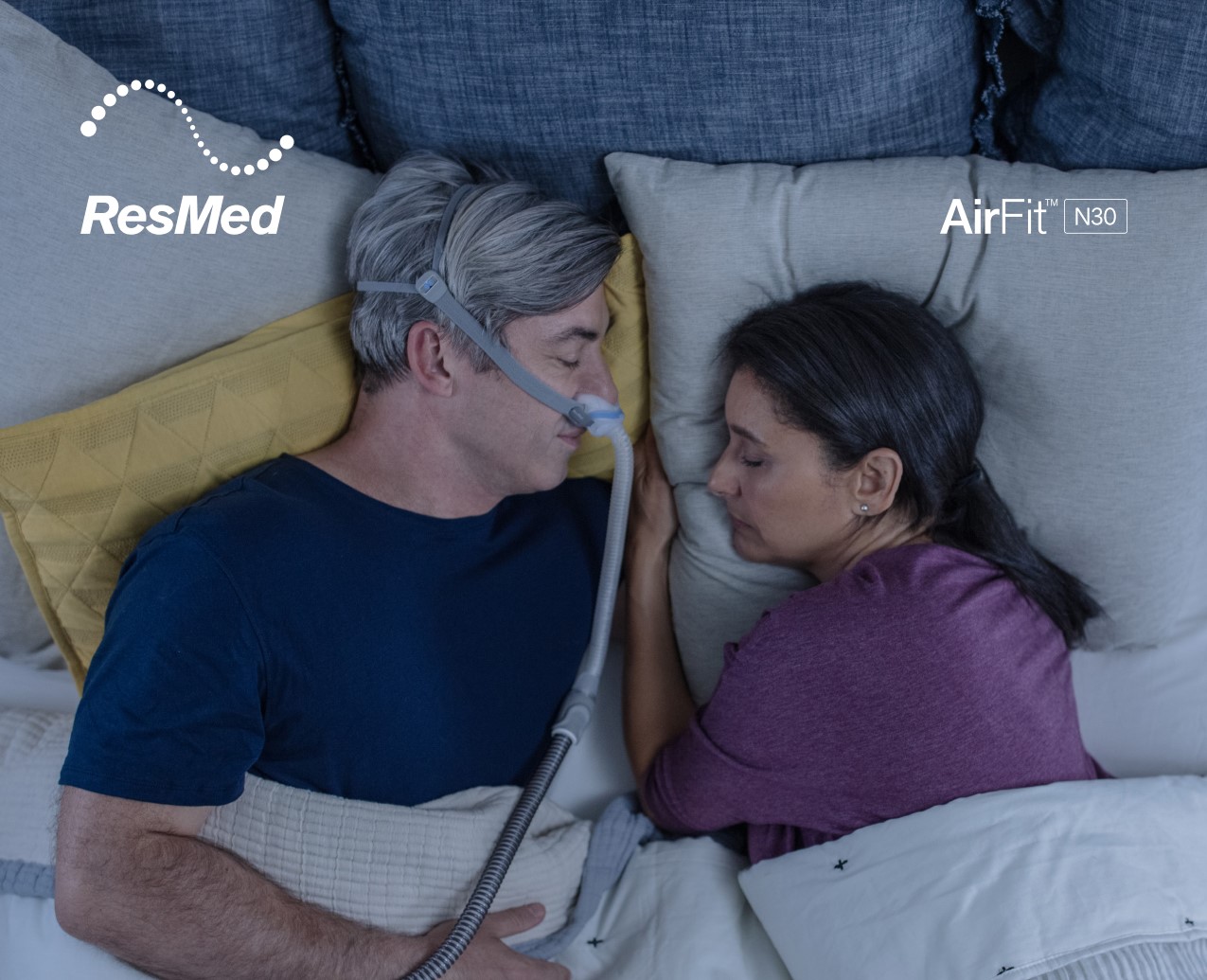
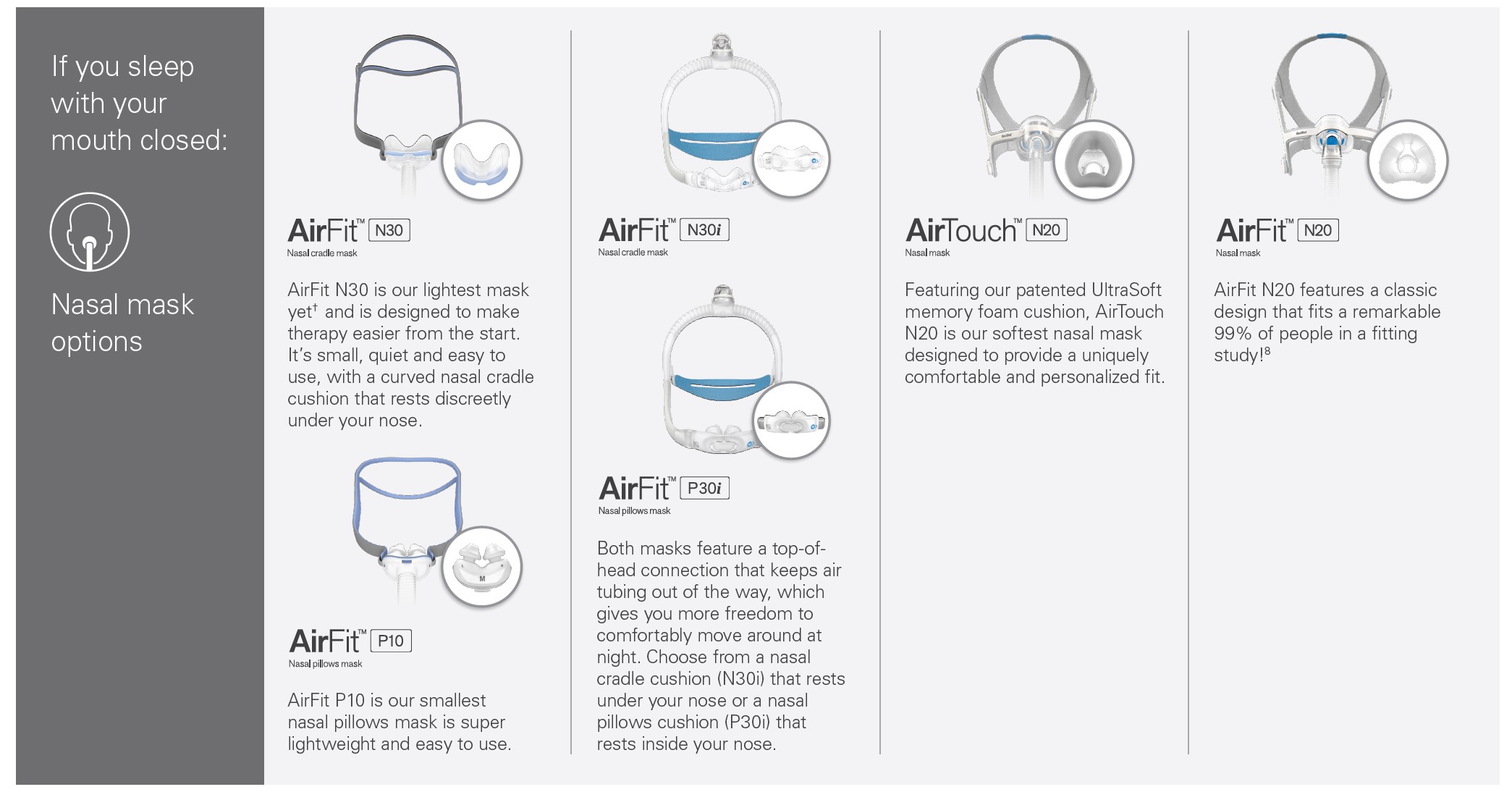
Click Here to Shop Mask Now 877 851 5943
Nasal pillow mask: This mask has small inserts that fit into the nostrils and is a good option for those who prefer minimal contact with their face.
A nasal pillow mask is a type of CPAP (Continuous Positive Airway Pressure) mask used to treat sleep apnea and other respiratory disorders. It has small inserts that fit into the nostrils, providing a seal around the nasal opening. This mask is an effective option for individuals who prefer minimal contact with their face while sleeping.
The nasal pillow mask is beneficial because it is less intrusive than a full-face or nasal mask, making it more comfortable and easier to wear. It is also suitable for individuals who breathe primarily through their noses while sleeping. The mask may also be helpful for individuals who wear glasses or prefer to read or watch TV before sleeping, as it does not obstruct the field of vision.
However, some individuals may find the nasal pillow mask uncomfortable or ineffective if they suffer from nasal congestion or allergies. Additionally, the mask may not be suitable for individuals who move around during sleep and need a more secure mask. Therefore, working with a healthcare provider to find the best mask type and fit for your specific condition and needs is important.
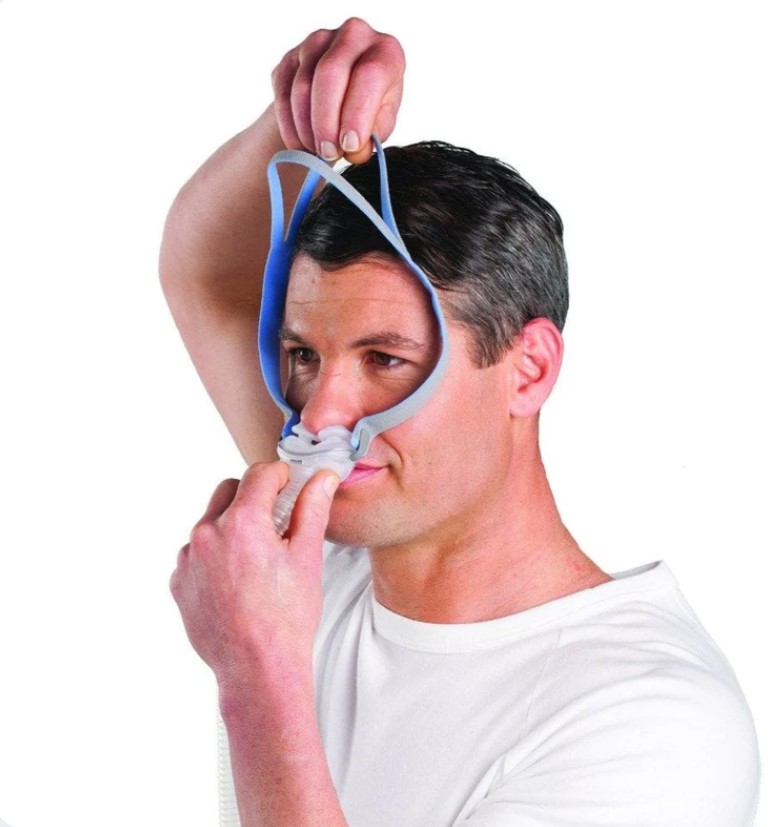
Click Here to Shop Mask Now 877 851 5943
Each type of CPAP mask has advantages and disadvantages, and the best mask for you will depend on your needs and preferences. Working with your healthcare provider to determine the best mask for your specific condition is essential.
ResMed CPAP Masks
ResMed is a leading manufacturer of CPAP (Continuous Positive Airway Pressure) masks used to treat sleep apnea and other respiratory disorders. ResMed offers a wide range of masks, including full-face masks, nasal masks, and nasal pillow masks, each designed to meet different individuals' specific needs and preferences.
One of the benefits of ResMed masks is their advanced technology and design. Many of their masks feature innovative features such as a cushioned seal to ensure comfort and minimize leakage, adjustable headgear to ensure a secure fit, and quiet ventilation to minimize noise during use.
ResMed masks also come in different sizes and styles to accommodate a range of facial structures and preferences. Their masks are often lightweight and durable, making them comfortable to wear and easy to clean.
In addition to their high-quality masks, ResMed offers a range of accessories and supplies to help individuals optimize their CPAP therapy, including filters, tubing, and cleaning solutions. They also provide online resources and support to help individuals troubleshoot issues and optimize their CPAP therapy.
ResMed masks are a reliable and effective option for individuals seeking CPAP therapy for sleep apnea and other respiratory disorders. It is important to work with a healthcare provider to find the best mask and CPAP machine for your specific needs and preferences.
Click Here to Shop Mask Now 877 851 5943
Is There a Best Mask For CPAP?
The three main types of CPAP masks are full-face, nasal, and nasal pillows. Full-face masks cover the nose and mouth, making them ideal for individuals who breathe through their mouths while sleeping. Nasal masks cover only the nose and are suitable for individuals who breathe primarily through their nose while sleeping. Nasal pillow masks have small inserts that fit into the nostrils, providing a seal around the nasal opening, and are suitable for individuals who prefer minimal contact with their face.
When choosing a mask, factors include fit, comfort, and effectiveness in treating your sleep apnea or respiratory condition. It is also important to consider other medical conditions or personal preferences affecting your mask choice. By working with a healthcare provider and trying different mask options, you can find the best mask that works for you and helps improve your sleep and overall health.
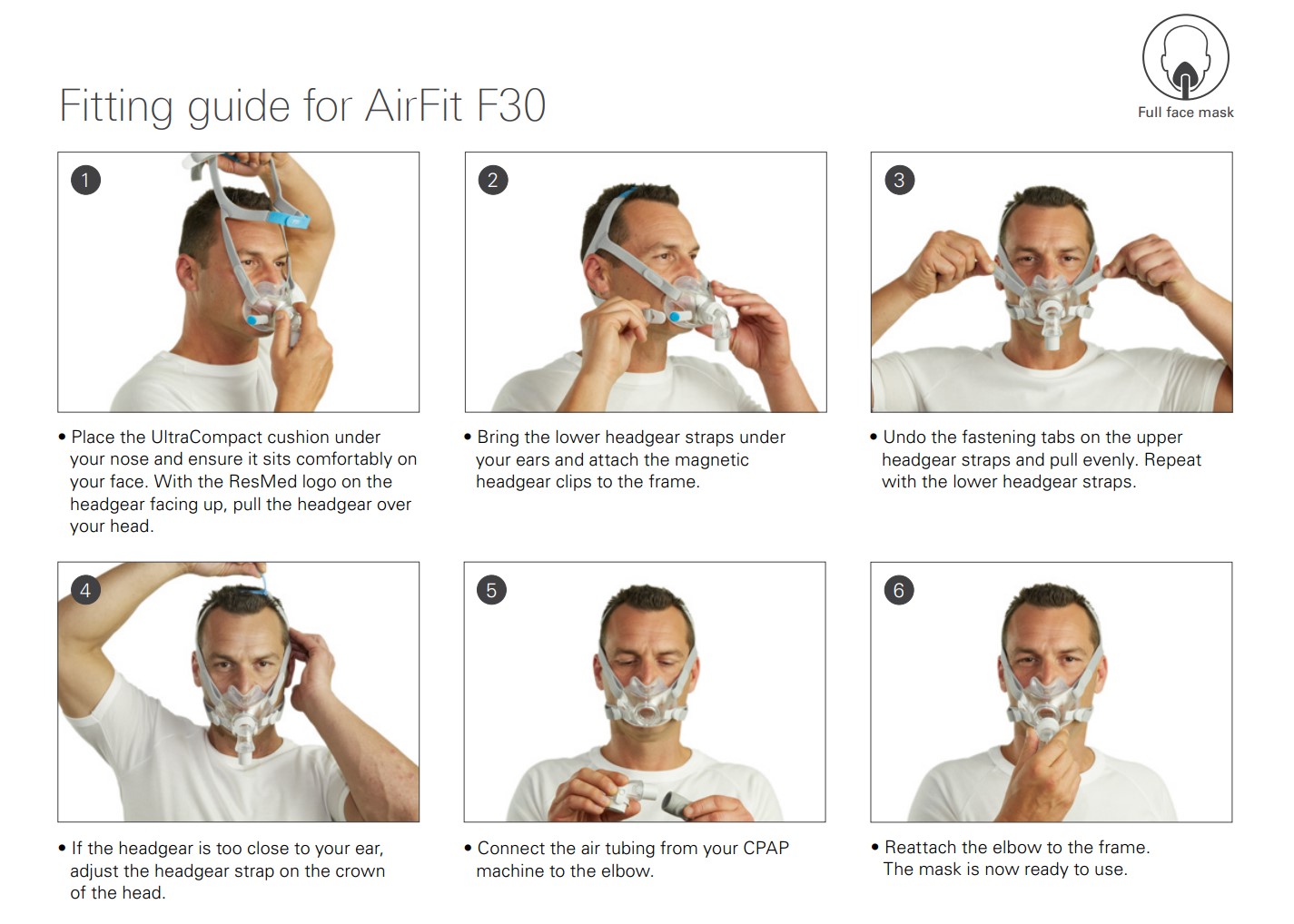
Call for CPAP Mask Fitting Template Kit
Click Here to Shop Mask Now 877 851 5943

